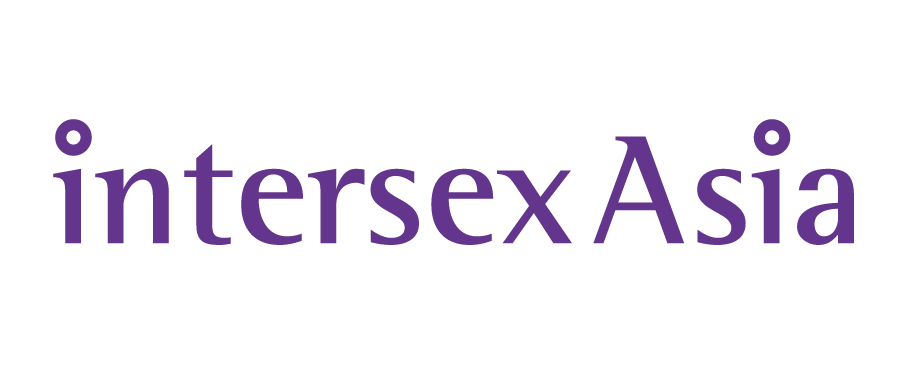
After three years’ Covid-19 pandemic, Intersex Asia organized the third Asian Intersex Forum in person on October 25-26, 2022 in Bangkok, Thailand. It was the first time that IA hosted the Asian Intersex Forum independently. The forum invited twenty-two intersex participants from nine Asian countries together to review the first Asian Intersex Statement created in 2018, aiming to increase intersex voices from more Asian countries to reflect their need for human right protection and remarkably celebrate the “Intersex Awareness Day” and “Asian Intersex Coming Out Day” together. The highlight of the third forum is that the number of participants is the most ever and there are seventeen new faces joining the forum which really imports new blood and energy to the intersex movement in Asia. The forum also invited partner organizations, activists, leaders, and experts from all over Asia. Since its inception, the forum has aimed to create a safe space for intersex people within the region, identify needs and priorities for the Asian intersex community, and to reinforce the Asian Intersex Statement.
This year, the forum started with a session by Hiker Chiu, Executive Director of Intersex Asia, on the developments in the Intersex movement in Asia and globally to give an overview for new participants about the context of the movement. Hiker’s session was followed by a presentation on using UN mechanisms to advocate intersex rights. In his presentation, Prashant Singh (Research and UN Advocacy Officer, IA) shared the UN advocacy approach of Intersex Asia and briefed the participants on how to engage with UN mechanisms. During the first half, IA also conducted a session in which representatives from nine countries presented the situation of intersex individuals, the current legal/policy barriers, and the work they have been doing concerning intersex rights in their respective countries. These foundations laid the framework for the participants to participate in the discussion on Asian Intersex Statement actively.
The intersex movement has undergone an enormous change during the last three years since the second Asian Intersex Forum was held. It was time to take stock of the developments that have taken place since then and plan for the coming years. The forum is also an opportunity for new activists to connect with each other. In particular, it is the first time for the graduates of the two editions of the IA Fellowship program to meet with each other. The discussions during the forum demonstrated the need to organize the forum. The participants shared their lived experiences during the last three years and spoke about the need to revisit the movement’s priorities. The forum allowed the participants to learn about the community’s common challenges and discuss the way forward.
The discussion on the Asian Intersex Statement started with how the forum participants felt about the document. A recurring theme in the discussion was that some of the demands in the existing version be combined together, expressed differently to be digestible for the general audience to understand, and made sure that the demands are arranged thematically. Specific language and words were encouraged to be used, like clearing out the demand in the statement that includes abortion.
To address the external stakeholders and the society at large, attendees laid out suggestions and proposals. The forum participants highlighted the need for intersex people to be recognized as humans – this comes along with the acknowledgment of rights, freedom, and existence. In addition, the participants highlighted the need to include sex characteristics as a protected ground in anti-discrimination laws and ordinances of countries within Asia.
Reflecting on the current state of laws, participants spoke about the need to include intersex people in the law-making processes. This encompasses the development of comprehensive and inclusive education for intersex children to access information and its implementation. In terms of health care, the inclusion, protection, and support of the physical and psycho-social needs of intersex people in medical institutions and health insurance were pointed out for review. The importance of studies and research was highlighted to open up opportunities for evidence generation to develop methodologies, especially in support of Intersex Asia’s members and other intersex-led organizations. In the matter of the protection of intersex people, acknowledgment of the injustice and discrimination faced by the intersex community was also raised. Further, access to justice and redress mechanisms should be readily available for intersex people, particularly workplace discrimination and sexual harassment. The discussion on the Asian Intersex Statement was concluded and agreed upon to be assessed in the coming months to encapsulate every need, demand, and consideration for all intersex people in the region.
The last day of the forum coincided with Intersex Awareness Day. To celebrate the occasion, Intersex Asia and Intersex Thailand joined hands together to organize a public event as a panel discussion to discuss the draft law that protects the rights of intersex people in Thailand. The program began with a statement of solidarity by Jessica Stern – United States (US) Special Envoy on LGBTQI+ Rights. In her message of support, she emphasized the commitment of her mandate to support intersex rights.
Afterward, the current draft of the legislation was presented by Intersex Thailand’s co-founder Nada Chaiyajit which was then followed by a panel discussion consisting of Mr. Arnt Kennis, the Deputy Head of Belgium’s Mission in Thailand, Dr. Suwadee Puntpanich, Ph.D. Public Health Policy, a member of the Board of Directors of the Thai Sang Thai Party, and Kathryn Johnson, a Policy Specialist from the UNDP Regional Office in Bangkok. The panel discussion moderated by Nada Chaiyajit of Intersex Thailand further affirmed the need for multi-sectoral alliances complementing the intersectional considerations that are needed in the intersex rights movement. The consultation process highlights the importance of lived experiences of the intersex community while at the same time taking into account medical and health aspects that are commonly looked over by implementing legislative bodies not only in Thailand but also its other Asian countries. The attendees also got to learn about the experience of Belgium when it comes to law-making regarding intersex rights. In the panel, there was also a lot of discussion of various UN agencies including UNDP in supporting the demand for the socio-economic rights of intersex people.
The panel discussion was aimed at encouraging the Thai government to launch a national-level consultation process with experts on the proposed draft law. It is critical that the rights of intersex persons and the said consultation process to includes concerns of the intersex community, and ethical and health-related concerns of medical professionals. The panel discussion concluded with supporting statements from representatives of regional organizations attending the event.
With this public event, the Third Asian Intersex Forum also came to an end. In the coming months, Intersex Asia will launch a series of online consultations to continue the discussion on the revision of the Asian Intersex Statement.



